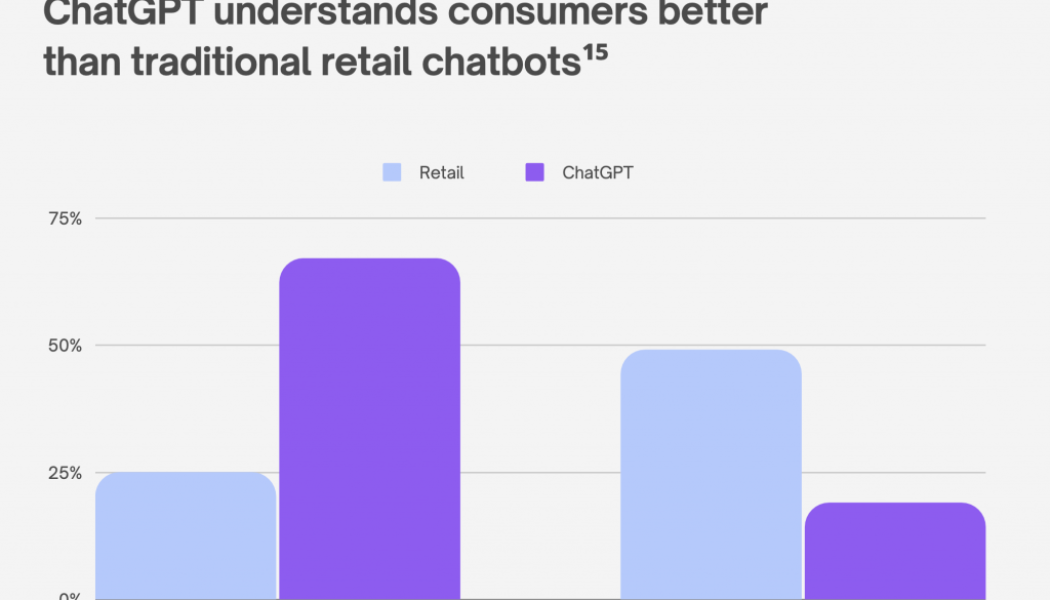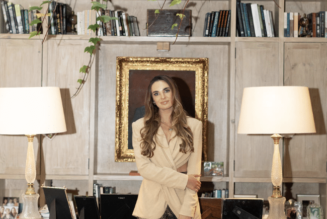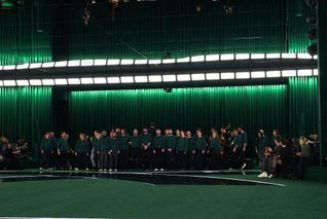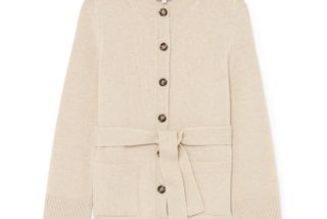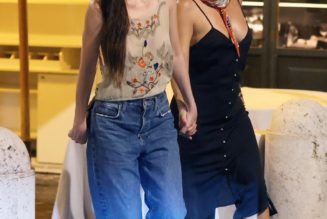According to Capterra’s February 2023 Retail Chatbots Survey, 67 percent of ChatGPT users said they “often” or “always” felt understood by the bot, compared to 25 percent of retail chatbot users feeling the same.
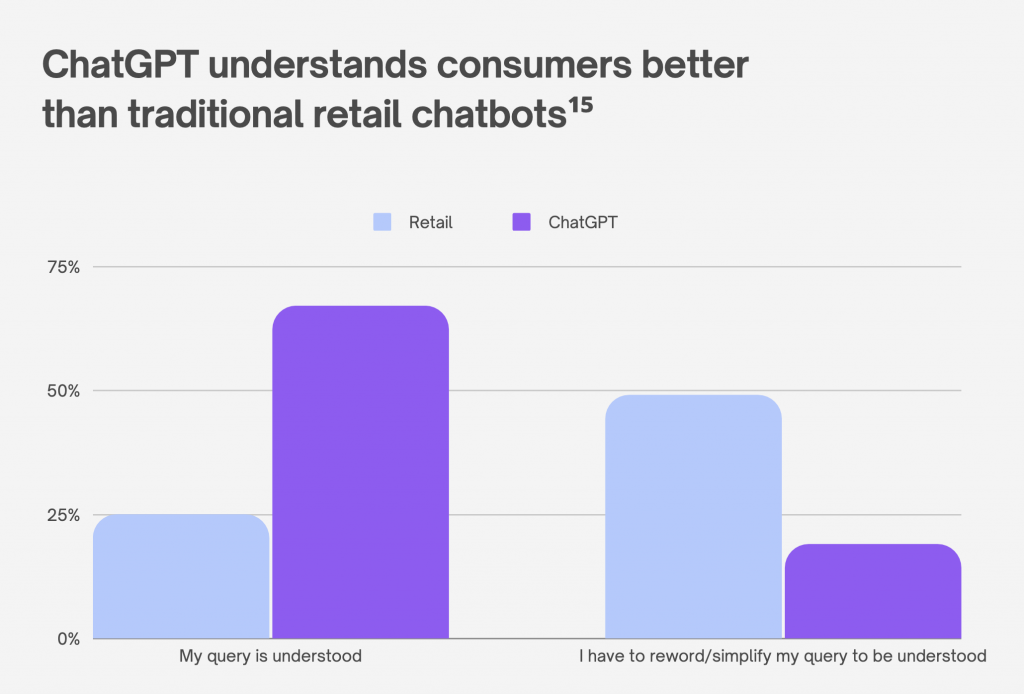
Sixty-seven percent of ChatGPT users said they “often” or “always” felt understood by the bot, whereas only 25 percent of retail chatbot users feel the same. Image: Capterra
Generative AI technology has the potential to transform various customer touchpoints, such as e-commerce sites, targeted ads, and in-store experiences. The advancement of AI technology offers exciting possibilities for next-level customer service, particularly in the realm of human-like interactions and multilingual support.
In China, for instance, 24/7 customer service already exists, but much of it relies on human agents. However, with the automation capabilities of AI, tasks traditionally handled by humans can now be automated. Platforms like Alibaba’s Taobao and Tmall have personalization engines that are becoming more accessible, and the compute power required for such applications is decreasing.
In fact, AI models like ChatGPT can already provide recommendations for playlists, similar to what Spotify offers. Similar capabilities are becoming available in the form of personal shopping assistants.
Creating sophisticated chatbots was once a daunting task, but the landscape has evolved significantly. Today, it’s possible to develop a basic chatbot within a mere 10 minutes using existing tools like Writesonic. These advancements empower brands to customize chatbots like ChatGPT by incorporating their own data and training models. While there may still be some occasional errors, it’s highly likely that these issues will be ironed out in the future as the technology continues to advance.
The accessibility of creating custom chatbots signifies the remarkable progress made in streamlining the development process, paving the way for more robust and accurate AI-powered conversational agents in the days ahead.
Zegna
Zegna announced the release of the Zegna X configurator in March 2023. The Zegna X configurator is an AI-powered shopping customization tool. Initially available on an appointment-only basis at Zegna’s Milan Montenapoleone flagship store, it will later be deployed in select stores worldwide.
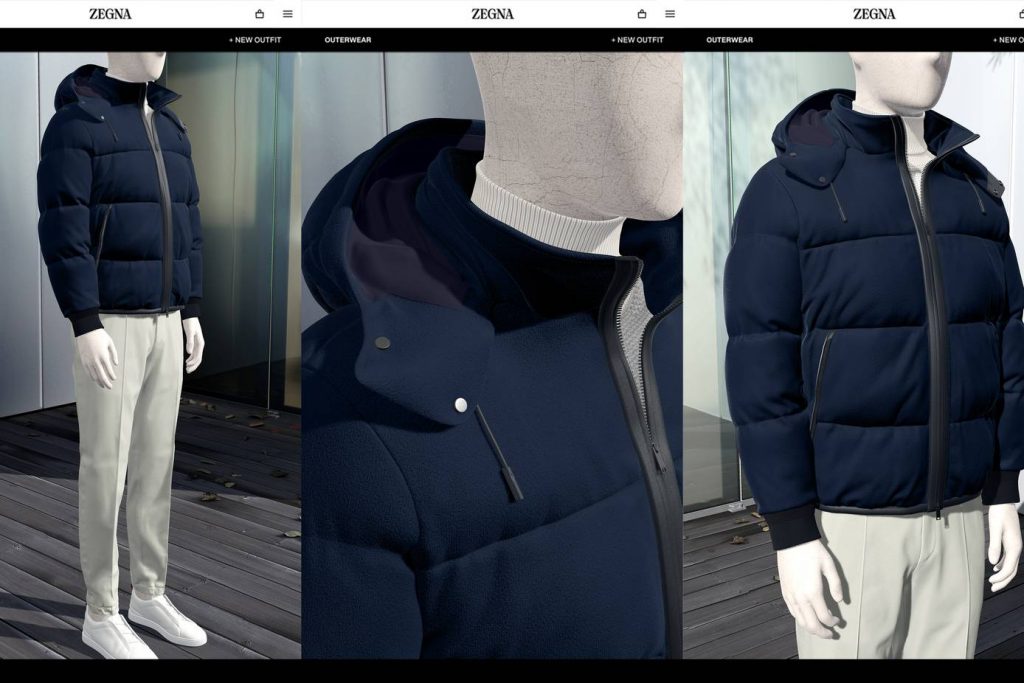
Zegna X will initially be dedicated to the brand’s Luxury Leisurewear collection, allowing customers to fully customize their fashion choices. Image: Zegna X
Edoardo Zegna, the brand’s chief sustainability and marketing officer told WWD: “I’ll tell you what a luxury experience is for me. I should be able to walk into a store and there is a room that is only in products of my size. When we offer a more efficient and straight-to-the-point experience, the customer sees the benefit and the spend increases drastically. A customer that is engaged on a one-to-one basis spends 75 percent more.”
“I’ll tell you what a luxury experience is for me. I should be able to walk into a store and there is a room that is only in products of my size.”
Alessandro Sartori, Zegna’s artistic director, who has always followed a hands-on approach to design, concurs. “[Zegna X] gives me more options and information to play with.”
He explained: “It’s a deep-dive into the tailoring experience. The tailor is still there and you have door-to-door delivery in four weeks, but now you can see yourself in a full outfit. You can choose the fabrics and the garments and you can see the detail. So, now we can treat the customer better and do a more complete job.” Edoardo Zegna adds that “the service will heighten the luxury experience.”
The impact of generative AI is becoming increasingly evident and hard to avoid. It’s likely that the tech’s transformative effects will only grow in the future.
Brands that understand how the competitive landscape will change will be better positioned to navigate the generative AI landscape, seize opportunities for growth and innovation, and navigate uncertain terrain.
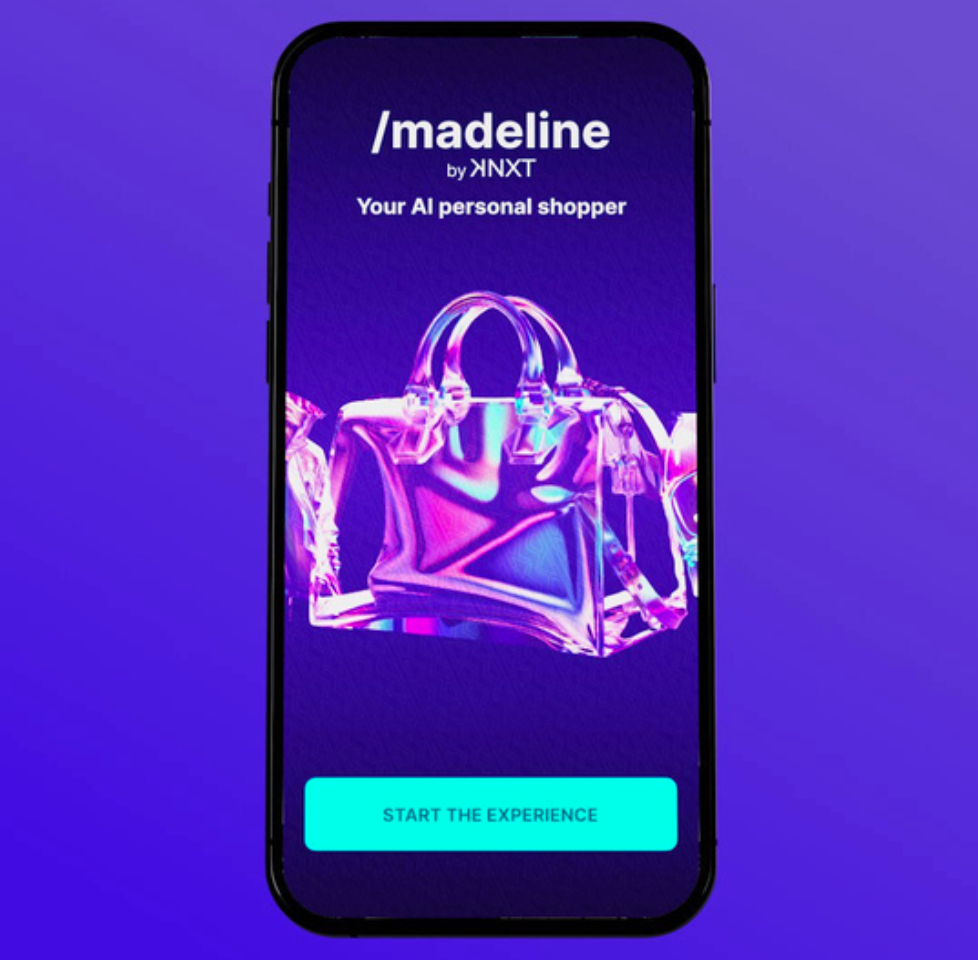
In March 2023, Kering’s cutting edge fashion space KNXT launched /madeline, an AI-powered shopping assistant. Image: KNXT
Kering
Kering has introduced “Madeline,” an AI-powered personal shopper that leverages OpenAI’s ChatGPT. Through the KNXT platform, visitors can now access a wide range of Kering’s prestigious brands, including Gucci, Bottega Veneta, Alexander McQueen, Balenciaga, and others, with the assistance of Madeline.
Operating like a traditional personal shopper, Madeline goes beyond merely suggesting products and provides additional information about fabric details, product origin, and care instructions. This innovative AI tool enhances the shopping experience, enabling customers to make informed decisions while exploring Kering’s diverse brand offerings. The integration of Kering’s Madeline into KNXT represents a significant step forward in personalized retail, bringing a wealth of knowledge and assistance to customers navigating the world of luxury fashion.
Klarna
Buy-now-pay-later provider Klarna and OpenAI collaborated to use ChatGPT as a shopping assistant. The Klarna integrated Plugin for ChatGPT will enable users to ask the platform for shopping advice and receive product recommendations along with links to shop those products.
Stitch Fix
Apparel retailer Stitch Fix is working with powerful AI models that specialize in text-to-image generation. The aim is to enhance sales and improve customer satisfaction by providing enhanced styling services. These generative models are being tested to assist stylists in efficiently analyzing vast amounts of customer feedback and curating products that align with customer preferences and purchasing patterns.
For instance, the AI tool can analyze a customer’s extensive feedback, including text comments, email requests, product ratings, and online posts. By identifying recurring themes, such as positive mentions of the “great fit” and “fun color” of a specific style of pants, Dall-E can generate images of similar pants that the customer is likely to be interested in purchasing. The stylist can then utilize Stitch Fix’s inventory to find comparable items and make personalized recommendations to the customer.
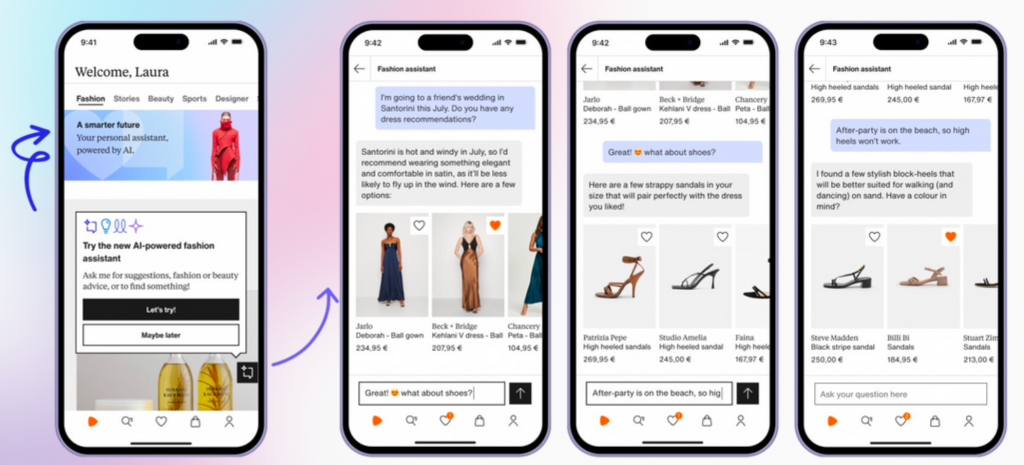
Zalando is testing a generative Al chatbot tool. Image: Zalando
Zalando
European retailer Zalando has big hopes for generative AI. It is testing a chatbot tool and plans to expand its capabilities. Zalando is leveraging OpenAI technology to enhance the customer experience by allowing them to use their own fashion terms and words when interacting with the platform.
For instance, customers can ask specific questions like, “What should I wear for a wedding in Santorini in July?” The fashion assistant is designed to understand the context, such as the formality of the event and the weather conditions, and provide tailored product recommendations accordingly.
Looking ahead, Zalando envisions further customization by incorporating customers’ preferences, including their preferred brands and available sizes. This consumer-centric launch holds significant potential and will be closely observed to gauge the customer reception and its impact on the overall user experience.
